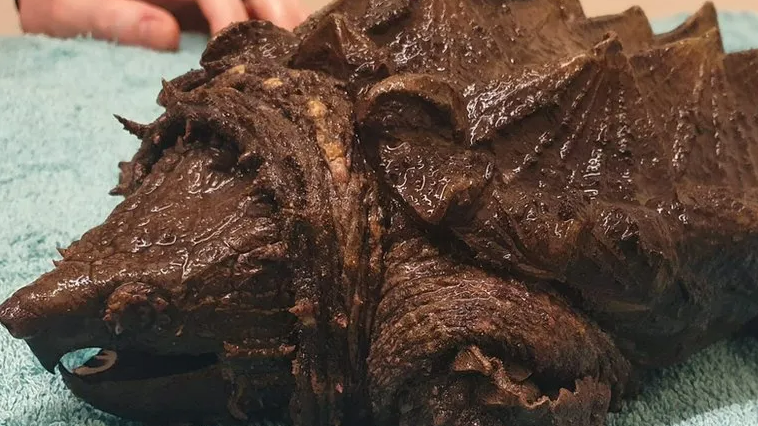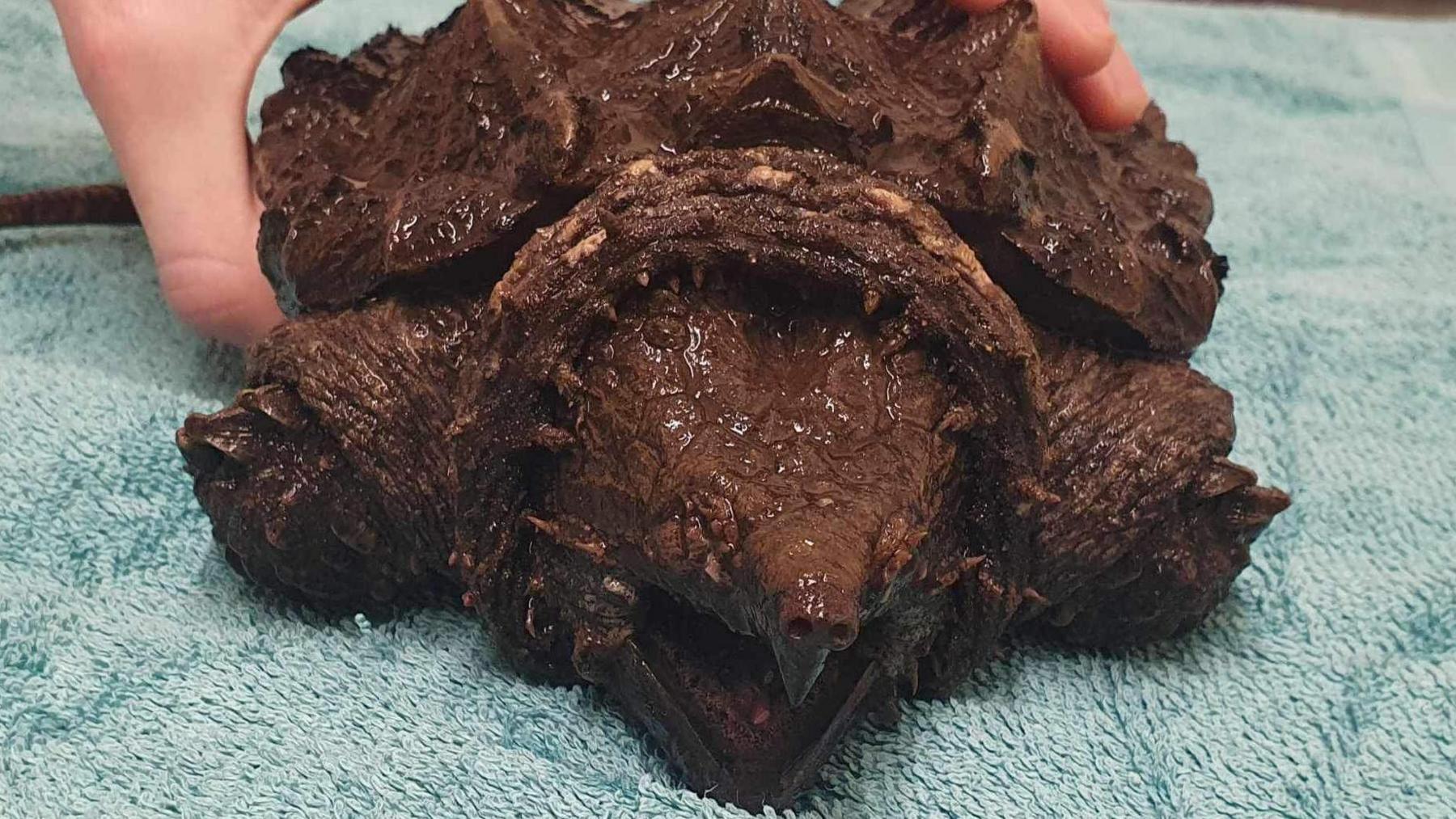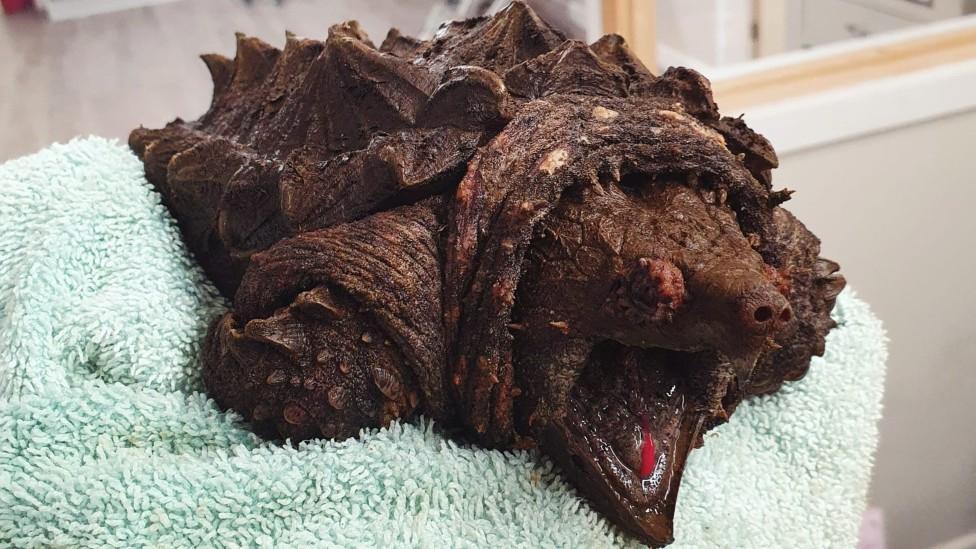Fluffy the alligator turtle is tough pet warns vet

Fluffy was fished out of a Cumbrian tarn in a shopping basket
- Published
The alligator snapping turtle discovered in Cumbria is off to a specialist reptile centre, with vets warning people against trying to get one for themselves.
'Fluffy' has proved a hit with millions worldwide after being fished out of Urswick Tarn, near Ulverston, by a shopping basket-wielding councillor last Monday.
The animal, native to North America, was delivered to Barrow's Wild Side Vets.
Staff there say Fluffy was possibly an unwanted pet and are urging people to "do a lot of research" before adopting an unfamiliar species.
'Nasty bite'
Parish councillor Denise Chamberlain donned three pairs of builders' gloves to rescue the creature, later dubbed Fluffy by vets.
Ms Chamberlain said she worried she might "lose a finger" to the animal which can grow up to 80kg (12st).
Her fears were not unwarranted, with vet Dr Dominic Moul confirming Fluffy was capable of a "nasty bite" and could have eaten through anything if not rescued.
After a week in the care of Wild Side's team, Fluffy is about to move to a specialist reptile centre.
Dr Kate Hornby said the turtle has not been eating since arriving at the clinic, "potentially because it is in a state of hibernation due to the colder UK climate".
She added: "It was quite muddy when it came in. It could have been there for some time and effectively hibernated.
"The tarn would not have reached the temperatures it would be used to and would need."

Fluffy has been seen by millions across the world since the discovery last week
Dr Hornby said Fluffy will be put into warmer waters to speed up its metabolism.
She said the animal is likely to have been kept at a pet, ending up in the tarn when owners struggled to keep up with its care demands or decided they did not want it.
"We don't often see reptiles at the clinic, and when they do come in it's often because the way they have been kept is incorrect.
"Doing a lot of research into the particular species you're looking at keeping and making sure you've got the appropriate housing and appropriate knowledge is important.
"But if people find that their circumstances have changed and they're in a position, reach out and speak to your vet."
Follow BBC Cumbria on X (formerly Twitter), external, Facebook, external and Instagram, external. Send your story ideas to northeastandcumbria@bbc.co.uk.
More on Fluffy
- Published9 February 2024
